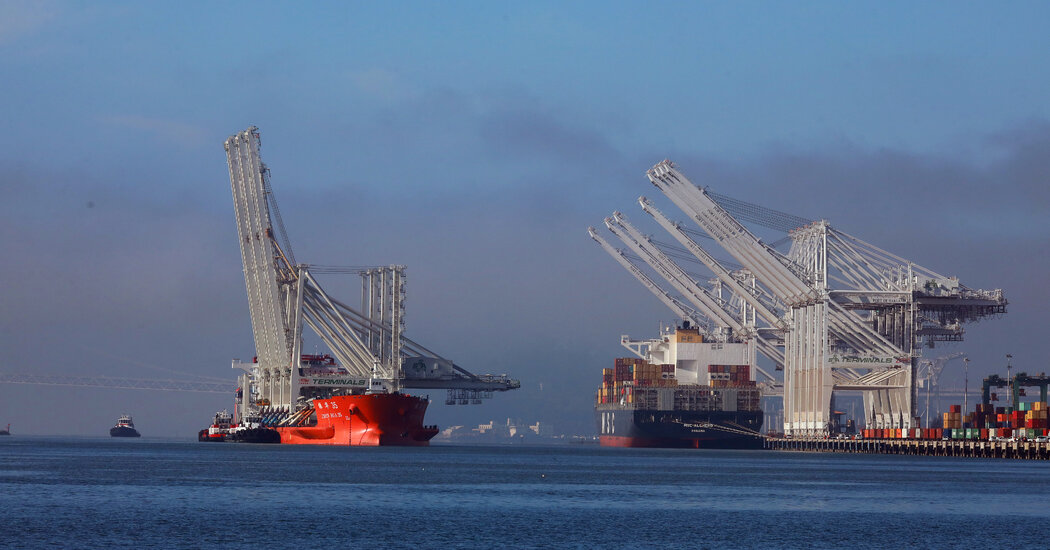ECONOMIC NEWS
Businesses Push Biden to Develop China Trade Policy
Treasury Secretary Janet L. Yellen told The New York Times this summer that tariffs had harmed American consumers, but she has also warned that Chinese subsidies for exporters pose a challenge for the United States. The United States trade representative, Katherine Tai, has described the tariffs as providing leverage.Understand the Infrastructure BillOne trillion dollar package passed. The Senate passed a sweeping bipartisan infrastructure package on Aug. 10, capping weeks of intense negotiations and debate over the largest federal investment in the nation’s aging public works system in more than a decade.The final vote. The final tally in the Senate was 69 in favor to 30 against. The legislation, which still must pass the House, would touch nearly every facet of the American economy and fortify the nation’s response to the warming of the planet.Main areas of spending. Overall, the bipartisan plan focuses spending on transportation, utilities and pollution cleanup.Transportation. About $110 billion would go to roads, bridges and other transportation projects; $25 billion for airports; and $66 billion for railways, giving Amtrak the most funding it has received since it was founded in 1971.Utilities. Senators have also included $65 billion meant to connect hard-to-reach rural communities to high-speed internet and help sign up low-income city dwellers who cannot afford it, and $8 billion for Western water infrastructure.Pollution cleanup: Roughly $21 billion would go to cleaning up abandoned wells and mines, and Superfund sites.Asked on Wednesday about the administration’s review of the tariffs, Jen Psaki, the White House press secretary, said, “I don’t have any timeline for you on when that review will be completed.”Business impatience with the administration’s approach is mounting. Corporate leaders say they need clarity about whether American companies will be able to do business with China, which is one of the biggest and fastest-growing markets. Business groups say their members are being put at a competitive disadvantage by the tariffs, which have raised costs for American importers.“We should be doing everything we can to increase China’s use and dependence on American technology products,” Patrick Gelsinger, the chief executive of Intel, said in an interview last week. The administration is “struggling to lay out a framework for how they have a policy-driven engagement with China,” he said.“To me, just saying, ‘Let’s be tough on China,’ that’s not a policy, that’s a campaign slogan,” he added. “It’s time to get to the real work of having a real policy of trade relationships and engagement around business exports and technology with China.”In early August, a group of influential U.S. business groups sent a letter to Ms. Yellen and Ms. Tai urging the administration to restart trade talks with China and cut tariffs on imported Chinese goods.“The main kind of dilemma that companies face right now is just uncertainty,” said Craig Allen, the president of the U.S.-China Business Council, which organized the letter. “Will the tariffs remain in place? Are they in place in perpetuity? What is the exclusion process to request an exemption from the tariffs? Nobody knows.”
Source link













